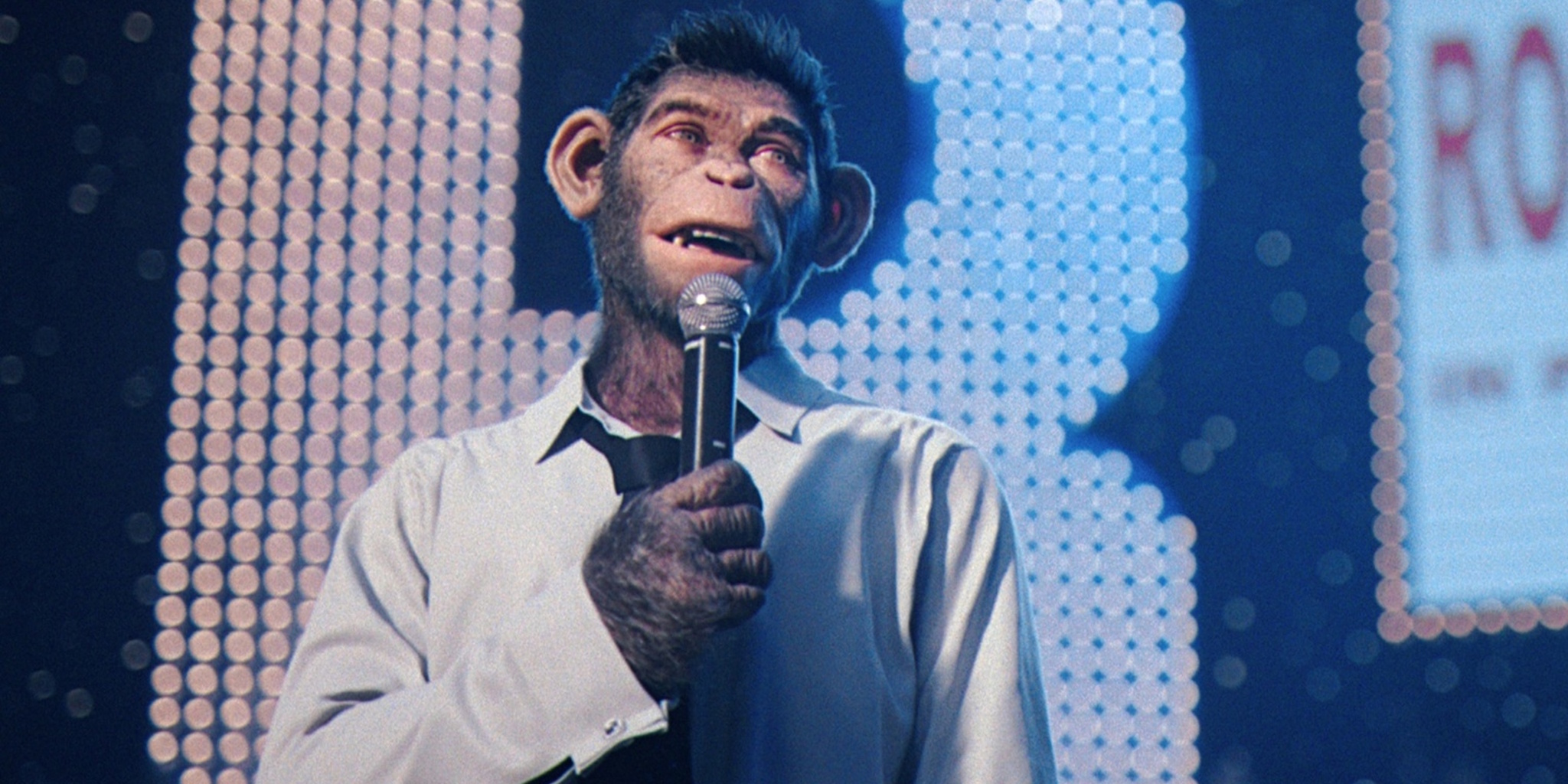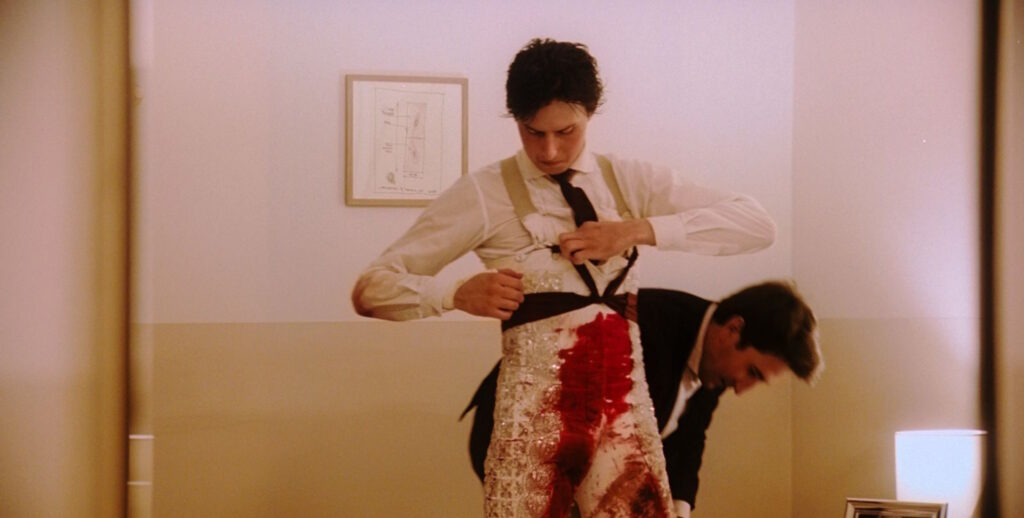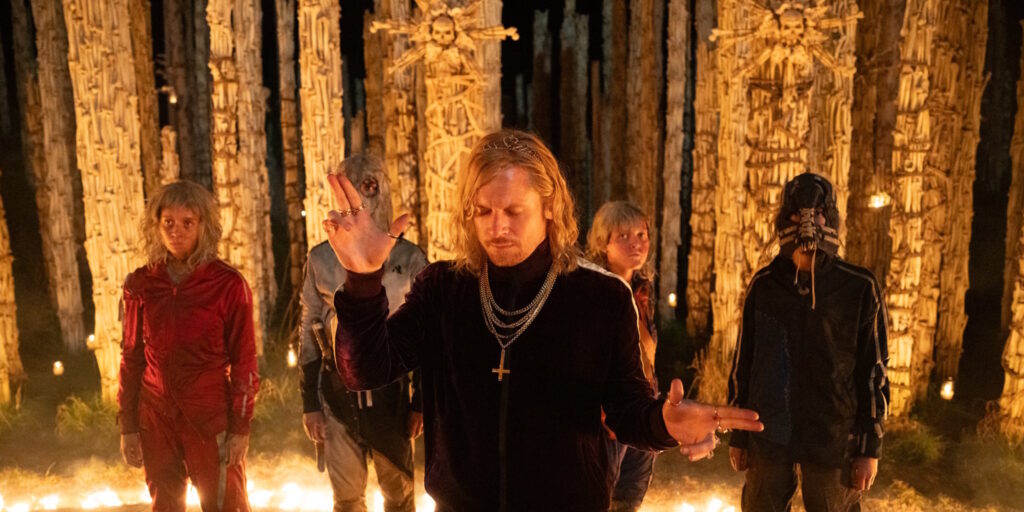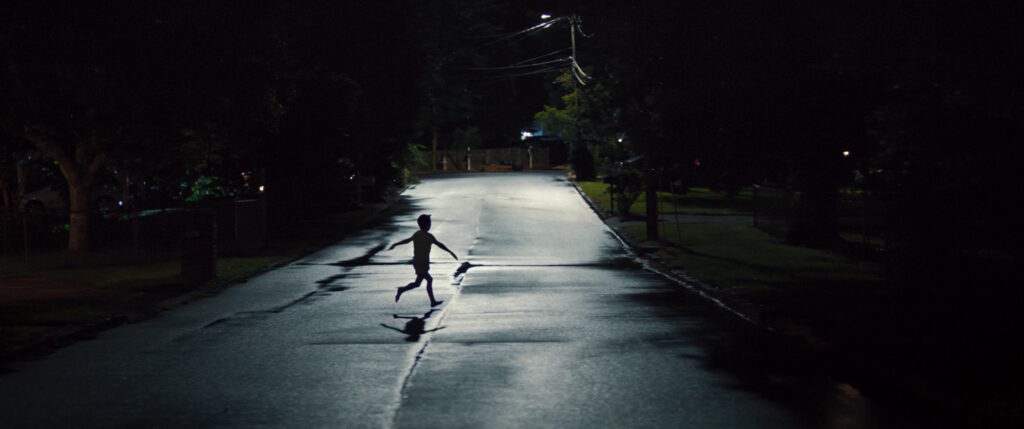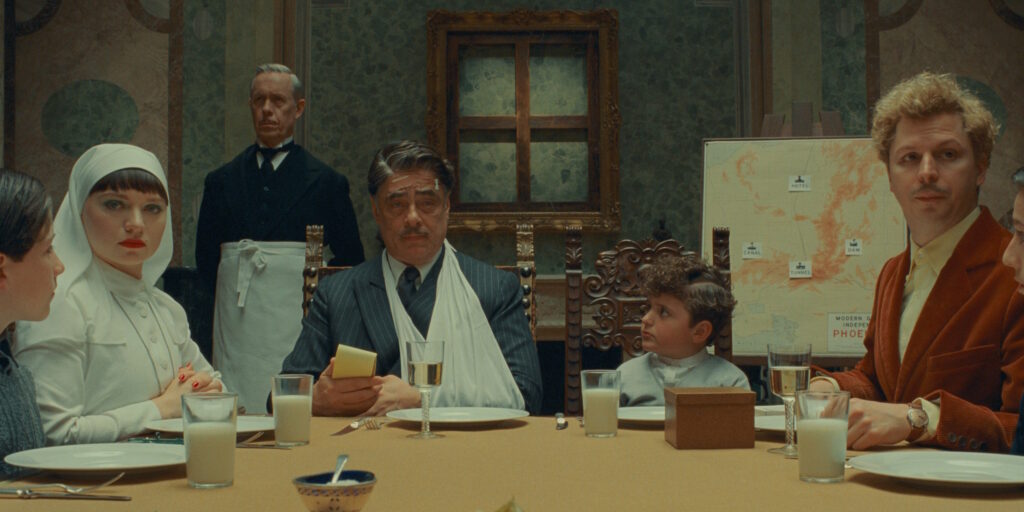Following a year with three major music biopics – Back to Black, Bob Marley: One Love, and A Complete Unknown – it’s challenging to sell another such feature to filmgoers. Besides the intrigue of watching a popular musician’s life story and listening to their biggest songs in a theater, the form rarely offers anything that the audience hasn’t already seen. There’s always the rough childhood, the naysayers refusing to believe the artist’s big dreams, the discovery, the rise, the supportive love interest, the complications of fame, the drug abuse, the low point, the love interest breaking up with them, the pivotal moment that demonstrates the artist’s disconnect from the people who were there from the beginning, the rehabilitation, and the ending where every conflict is neatly reconciled and the artist triumphantly demonstrates their victory in overcoming the trials of celebrity and the music industry. It is a structure repeated time and time again, so much so that we now have parodies that lampoon the predictability of the genre.
What’s interesting about Better Man, the new biopic of British pop star Robbie Williams (Jonno Davies), is how it unabashedly embraces the obvious formula. It follows the beats to a T, covering Williams’ childhood, his short time in the 1990s boy band Take That before being kicked out, the success of his solo career, his issues with drugs and alcohol, all the way to a celebratory concert to wrap up his personal growth. Despite the overly familiar plot, there are two factors that keep the biopic from falling into instant obscurity. The first is director Michael Gracey, the man who knew to make The Greatest Showman energetic enough for people to look over its problematic qualities. The other is the direct involvement of Williams, narrating his life story and electing to depict himself as a chimpanzee.
Where most music biopics act as a display for actors showing off their skills at imitating real people, Williams cuts through that. Davies may act out his performance in a motion-capture suit, but the furry result will leave audiences thinking more of the man he’s playing. In a bold and fittingly selfish move, Williams steals the spotlight for himself, turning Better Man into a personal spectacle.
Alongside writers Simon Gleeson and Oliver Cole, Williams and Gracey attempt to look into the pop star’s tumultuous life. Williams’ narration proudly calls to mind the outrageous moments in his career, from lewd behavior to picking fights with celebrities while winning an award on live television, even calling himself a “twat” (amongst other derogatory terms). Despite being proud of his bad-boy edge, he dives into his insecurities, noting his absent comedian father (Steve Pemberton), his failed relationship with All Saints’ Nicole Appleton (Raechelle Banno), and his struggles with severe depression and low self-esteem. However, due to Williams’ intimate involvement in the project, these storylines never feel as vulnerable as they should.
There’s one element in Better Man that the film can never escape: the music that forms the backbone of this biopic form. As Williams explains his mental-health issues and failures, Gracey can’t help but shift this vulnerability into operatic, high-energy musical numbers. He shows the emotions that weigh heavily on the musician’s mind, but also makes it epic. So epic that it becomes mythological, as if Williams is a Greek hero in the midst of his grand quest for happiness. Although this fits the zaniness of having a CGI monkey play a rambunctious star, the disconnect becomes clear once Williams begins a violent fight against an arena full of other versions of himself. As much as the film wants Robbie Williams to be seen as human, it also wants to declare him the coolest guy in Britpop, a side effect of placing his story in the hands of a director that can make an awful man like P.T Barnum lovable.
The contradictory perspective Better Man develops leads to a confusing experience. The music numbers – such as a fun sequence of Take That singing “Rock DJ” while running amok in London – excite and dazzle with the kinetic energy of Erik A. Wilson’s cinematography. As Williams promises in the opening credits, he certainly set out to entertain. Gleeson and Cole’s devotion to the music biopic formula, although incredibly predictable, also works out in its favor, as its shamelessness and sincerity lend life to a genre that desperately needs it. There is even something to admire in Williams’ bald-faced approach; as he boasts of his achievements, he admits that he went into music not for the art but simply to be famous.
At the same time, the superficiality is keenly felt. Opportunities for Williams to speak frankly about his identity, such as his rumored queerness, are merely teased. The film never takes time to breathe, constantly going from one big life event to another. Instead of allowing Better Man to exhibit nuance amid all its flashiness, Williams and Gracey tend to explain the point of a scene rather than letting it express its own feeling.
It then becomes hard to figure out what to make of the monkey. Wanting to show the world how he views himself, Williams explains that he always felt “less evolved” than others. And yet, in his display of humility, he refuses to further explain his ostracization: What exactly – beyond an unfulfilling childhood – made him feel like an animal hungry for fame and love? The result is an entertaining humblebrag of a movie, a biopic that wants to be ambitious but merely satisfies. It functions fine as a love letter to Williams, yet there is a yearning for a deeper understanding of such a complicated figure.
However, one of the feature’s edges is that it knows its own conventions inside and out. Being aware of the tropes of the music biopic, Gracey creates a memorable take on a musician that will likely endure in the cultural memory simply for its strangeness. (Where else will audiences see a chimpanzee getting a handjob or snorting coke?) Better Man, intentionally or not, makes apparent the narcissism inherent within the genre, pairing it with one of pop’s most egotistical artists. In that regard, the vain nature of it all is rather refreshing. Gracey doesn’t hide behind prestige, and there’s no attempt to have the film appear smarter than it is. He and Williams simply want to entertain, letting their work stand exposed for everyone to marvel at. At the very least, they give us a good show.
Better Man is now playing in theaters.
